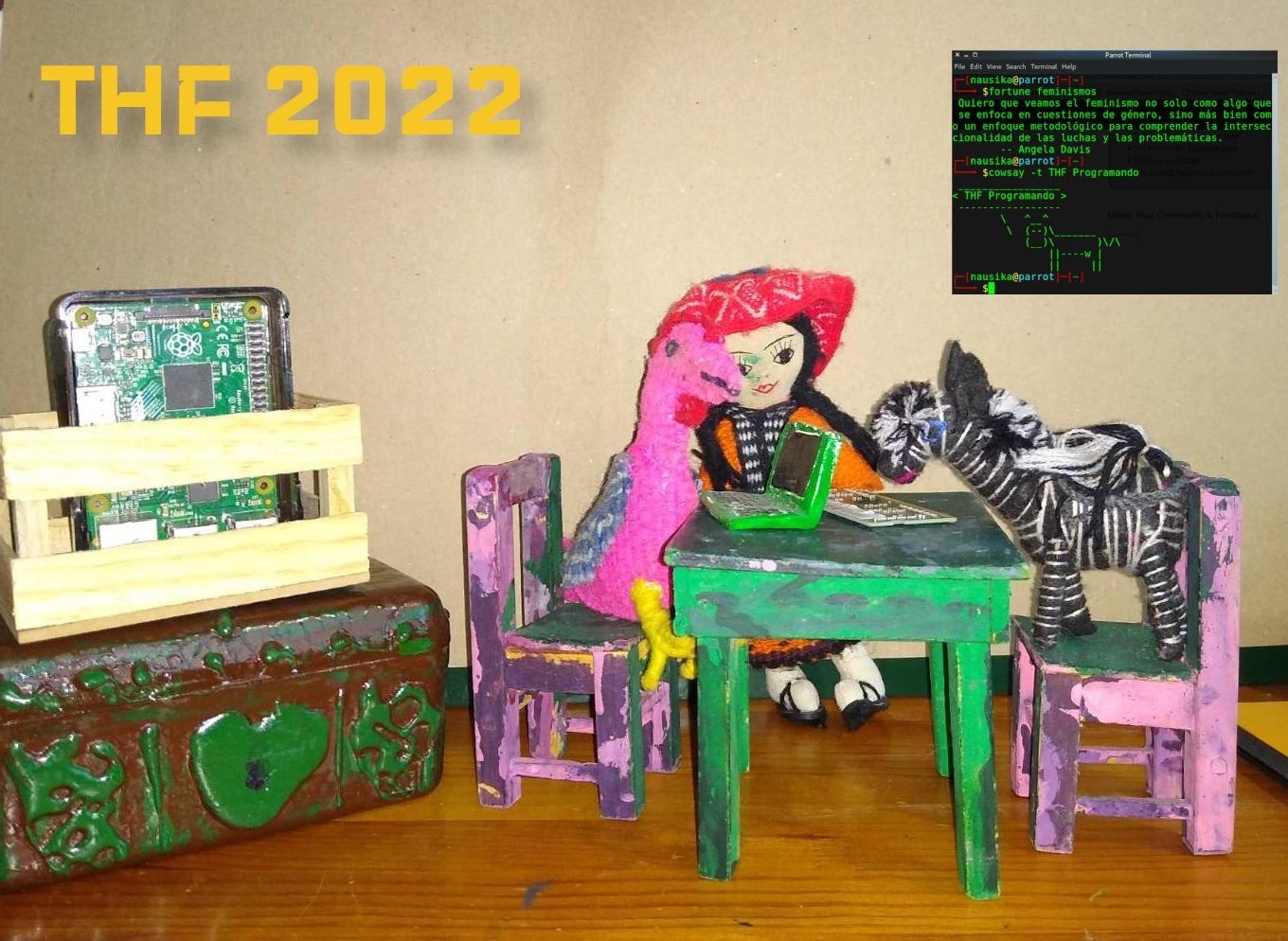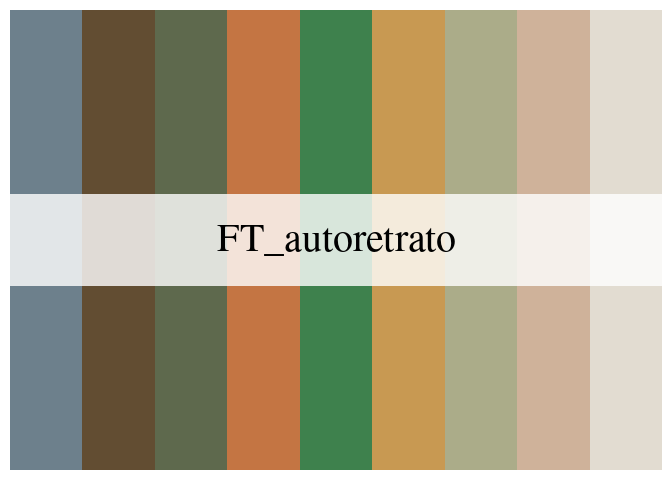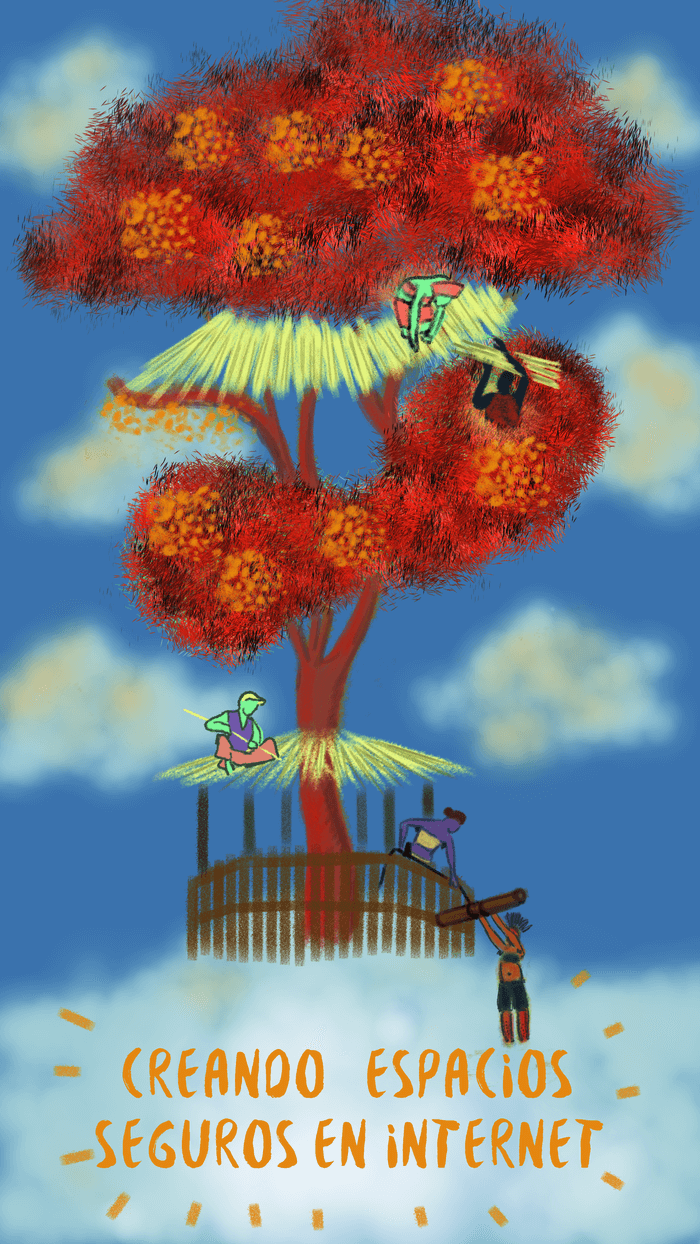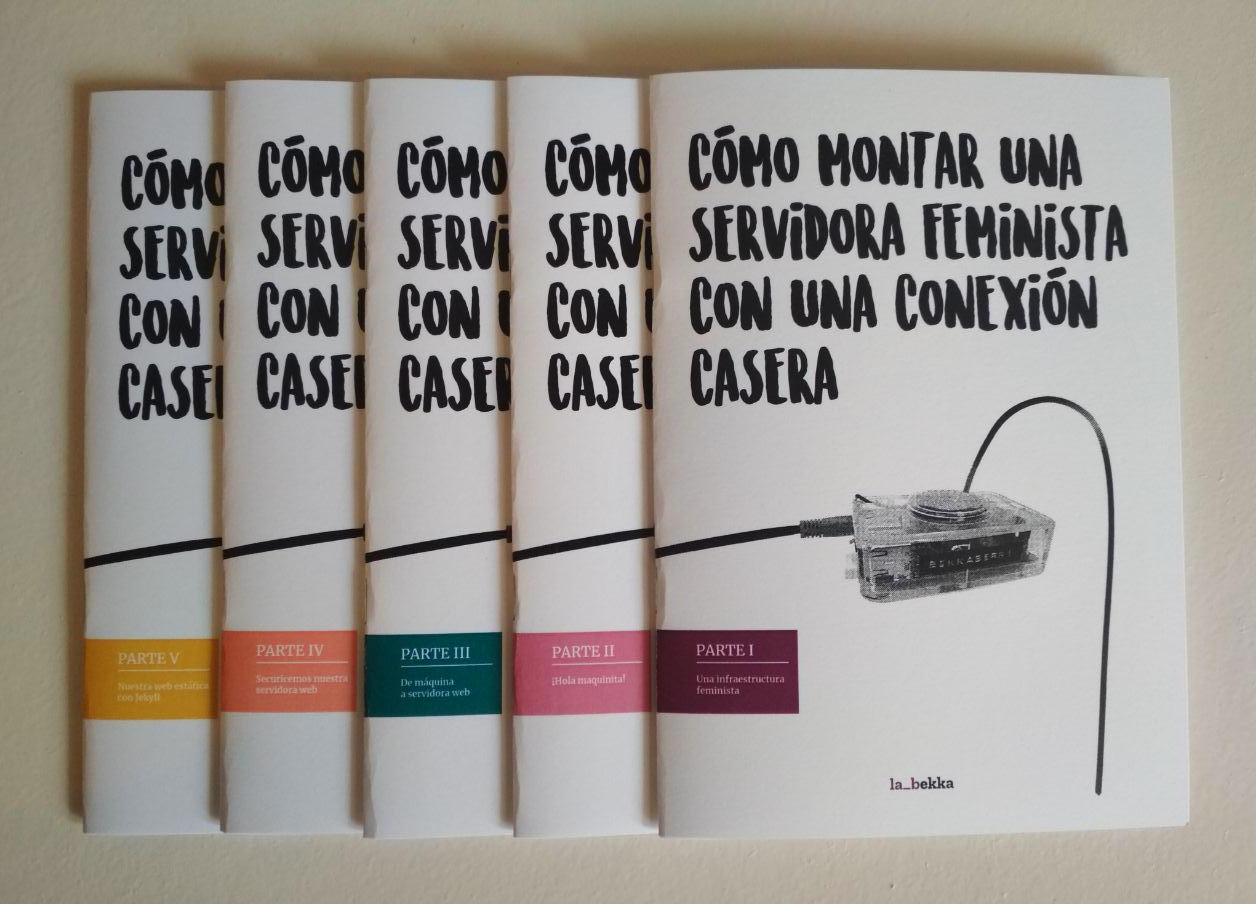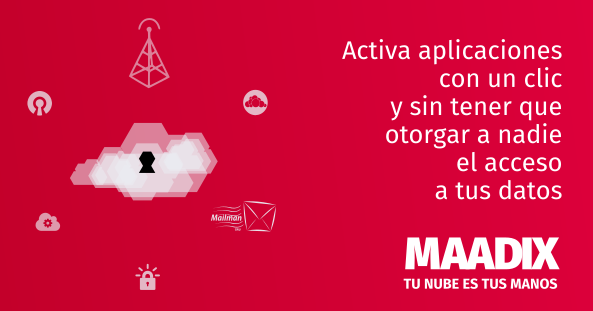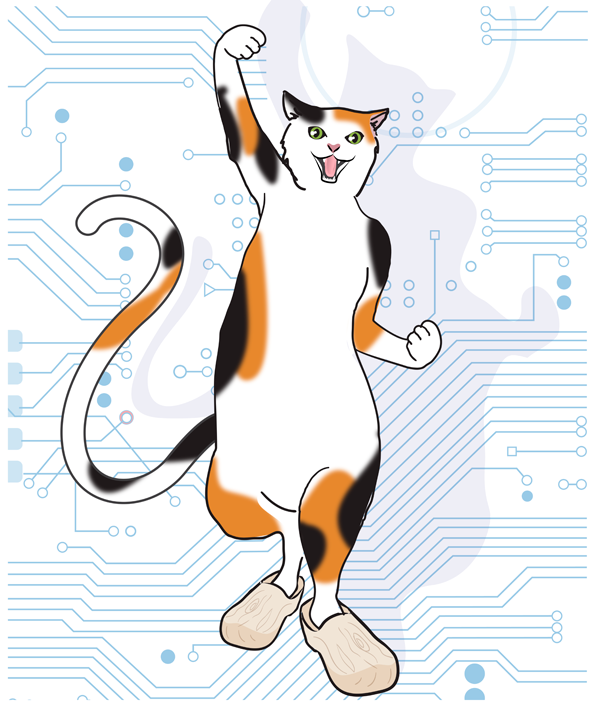Además, si lo has leído y puesto en práctica, nos gustaría conocer tu experiencia, saber qué te gustó y qué mejorarías. Incluso, que nos cuentes qué otras secciones querrías añadir al fanzine.
Para esta sesión será deseable tener algunos conocimientos básicos de GNU/Linux, pero no imprescindible. Todas las personas con interés en infraestructura transfeminista autónoma son bienvenidas :).
Idioma: Castellano
Documentación
Castellano
[English below]
Esta guía es el resultado de más de un año de trabajo en la_bekka, el espacio hackfeminista de la Eskalera Karakola (EKKA), una casa pública transfeminista -antigua casa okupa- de la ciudad de Madrid. Desde finales del año 2017 nos juntamos semanalmente para aprender, compartir y montar nuestra infraestructura digital. Unos meses más tarde, en marzo de 2018, nos reunimos un grupo de servidoras feministas en Calafou para conocernos y pensar juntas qué significaba construir infraestructura feminista. Pensamos en las máquinas (digitales y analógicas) y en código y conexiones. Pero también pensamos en nosotras, en nuestros cuerpos, nuestras relaciones, nuestros tiempos. Tratamos de identificar qué es aquello que sostiene nuestras prácticas: el aire, el cariño, la electricidad, la empatía, el descanso. Al día de hoy todavía seguimos pensando.
De regreso, en Madrid, vimos que en la EKKA había máquinas viejas de proyectos de años anteriores así que hicimos un poco de arqueología informática. Revisamos todos los equipos que encontramos, reciclamos los que pudimos y nos deshicimos de los demás (llevándolos al punto limpio). Exploramos viejos discos duros y encontramos memorias de quienes habían transitado el espacio antes que nosotras. Respaldamos todo porque lo que se borra se olvida y la memoria alimenta el corazón de nuestro movimiento.
Finalmente montamos una servidora web utilizando los recursos que teníamos a mano y que pensamos que eran fácilmente accesibles. Para el hardware elegimos una Raspberri Pi, una pequeña máquina de bajo costo al alcance de muchas y con recursos suficientes para alojar una web. Es verdad que no todas tenemos la posibilidad de hacernos con una. No importa, podemos seguir las instrucciones de esta guía usando una laptop vieja, una computadora de escritorio que armamos con partes a lo Frankenstein.
Otra de las ventajas de usar una Raspberry Pi es su bajo consumo energético. Aunque varíe según los servicios que esté corriendo, el consumo eléctrico promedio para nuestra servidora será de unos 3 watts por hora, lo que nos da un consumo mensual de 2,15 kilowatts si la tenemos prendida todo el día. Así que por más cara que esté la electricidad en donde vivan no creemos que supere el dólar mensual. También usaremos Raspbian, una distribución de GNU/Linux desarrollada para Raspberri Pi; Apache, porque es un servidor web con mucha documentación y algunas ya lo conociamos un poco; y Jekyll, un generador de sitios estáticos que reduce la cantidad de recursos necesarios para funcionar.
Estas fueron nuestras elecciones a partir de lo que teníamos. Pero también pueden remplazar estas opciones por otras a partir de lo que ustedes tengan a mano o con lo que quieran experimentar. Pueden usar una máquina de escritorio o laptop vieja, pueden elegir usar Debian u también optar por nGinx para su servidora. Todo es posible y de eso se trata: que hagamos nuestras propias elecciones y aprendamos en el camino.
Recursos
Fanzine
- Parte 1 – Una infraestructura feminista
- Parte 2 – ¡Hola maquinita!
- Parte 3 – De máquina a servidora
- Parte 4 – Securicemos nuestra servidora web
- Parte 5 – Nuestra web estática con Jekyll
English
This guide results from more than a year of work in la_bekka, the hackfeminist space of Eskalera Karakola (EKKA), a transfeminist public house -former squat- in the city of Madrid. Since the end of 2017, we have met weekly to learn, share and set up our digital infrastructure. A few months later, in March 2018, we met a group of feminist servants in Calafou to get to know each other and think together about what it meant to build feminist infrastructure. We thought about machines (digital and analogue) and code and connections. But we also thought about ourselves, our bodies, our relationships, and our times. We tried to identify what sustains our practices: air, affection, electricity, empathy, and rest. To this day, we are still thinking.
Back in Madrid, we saw that EKKA had old machines from previous projects, so we did a bit of computer archaeology. We went through all the equipment we found, recycled the ones we could and got rid of the rest (taking them to the clean point). We explored old hard drives, and we found memories of those who had been in the space before us. We backed everything up because what is erased is forgotten, and memory feeds the heart of our movement.
Finally, we set up a web server using the resources we had on hand and that we thought were easily accessible. For the hardware, we chose a Raspberri Pi, a small, low-cost machine within reach of many and with enough resources to host a web. It is true that not all of us have the possibility to get one. No matter, we can follow the instructions in this guide using an old laptop, a desktop computer that we put together with Frankenstein-like parts.
Another advantage of using a Raspberry Pi is its low power consumption. Although it varies depending on the services it is running, the average power consumption for our server will be about 3 watts per hour, which gives us a monthly consumption of 2.15 kilowatts if we have it on all day. So no matter how expensive electricity is where you live, we don’t think it will be more than a dollar a month. We will also use Raspbian, a GNU/Linux distribution developed for Raspberri Pi; Apache, because it is a web server with a lot of documentation, and some of us already knew it a bit; and Jekyll, a static site generator that reduces the resources needed to run.
These were our choices based on what we had. But you can also replace these options with others based on what you have on hand or what you want to experiment with. You can use an old desktop or laptop machine; you can choose to use Debian or also opt for nGinx for your server. Everything is possible, and that’s what it’s all about: that we make our own choices and learn along the way.
For the moment, the fanzine is just in Spanish. If you want to update, maintain or translate it, access the public repository at https://0xacab.org/labekka/fanzine-servidora-web-feminista or contact La Bekka at hacklabfeminista@riseup.net
